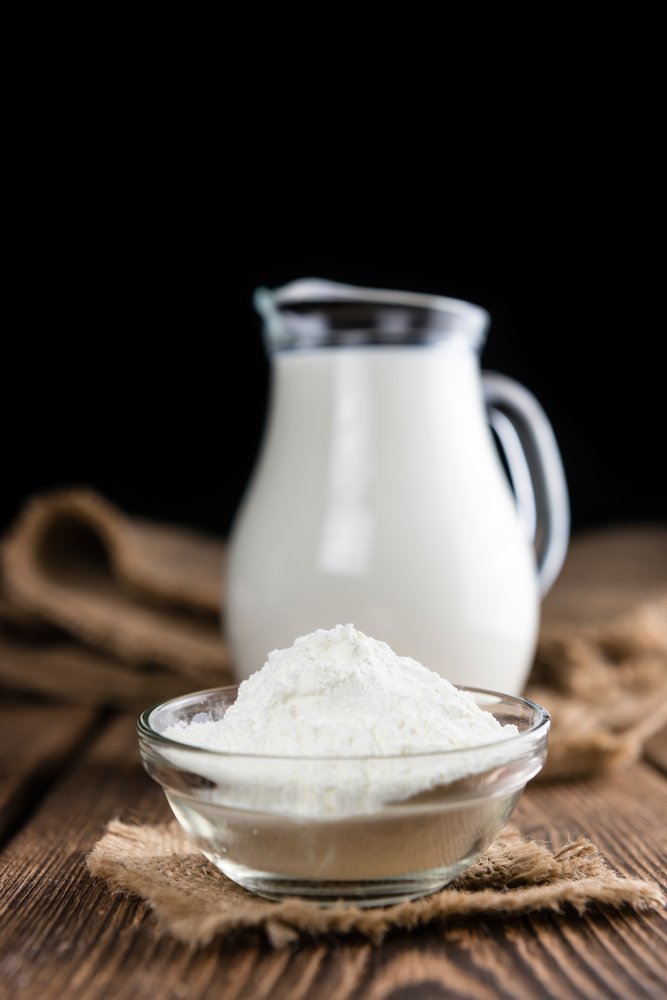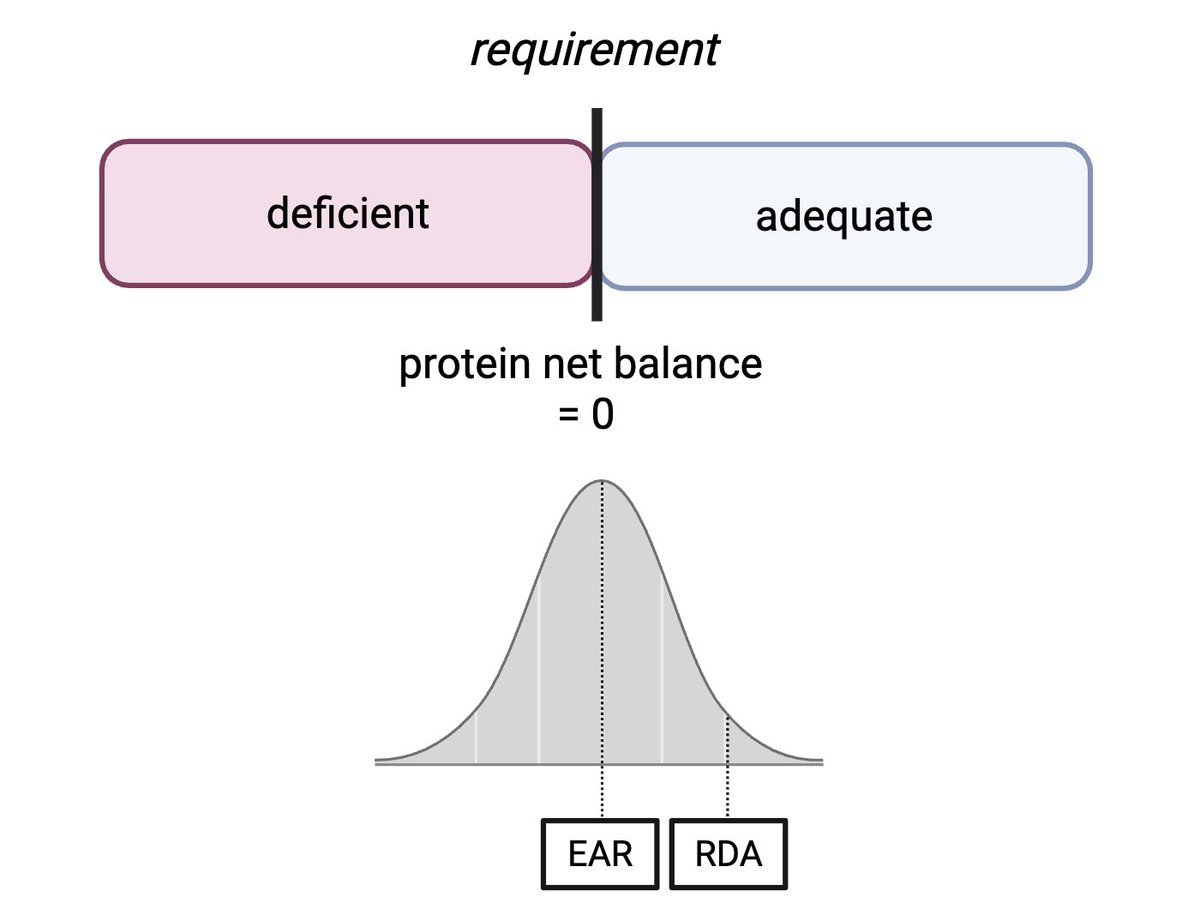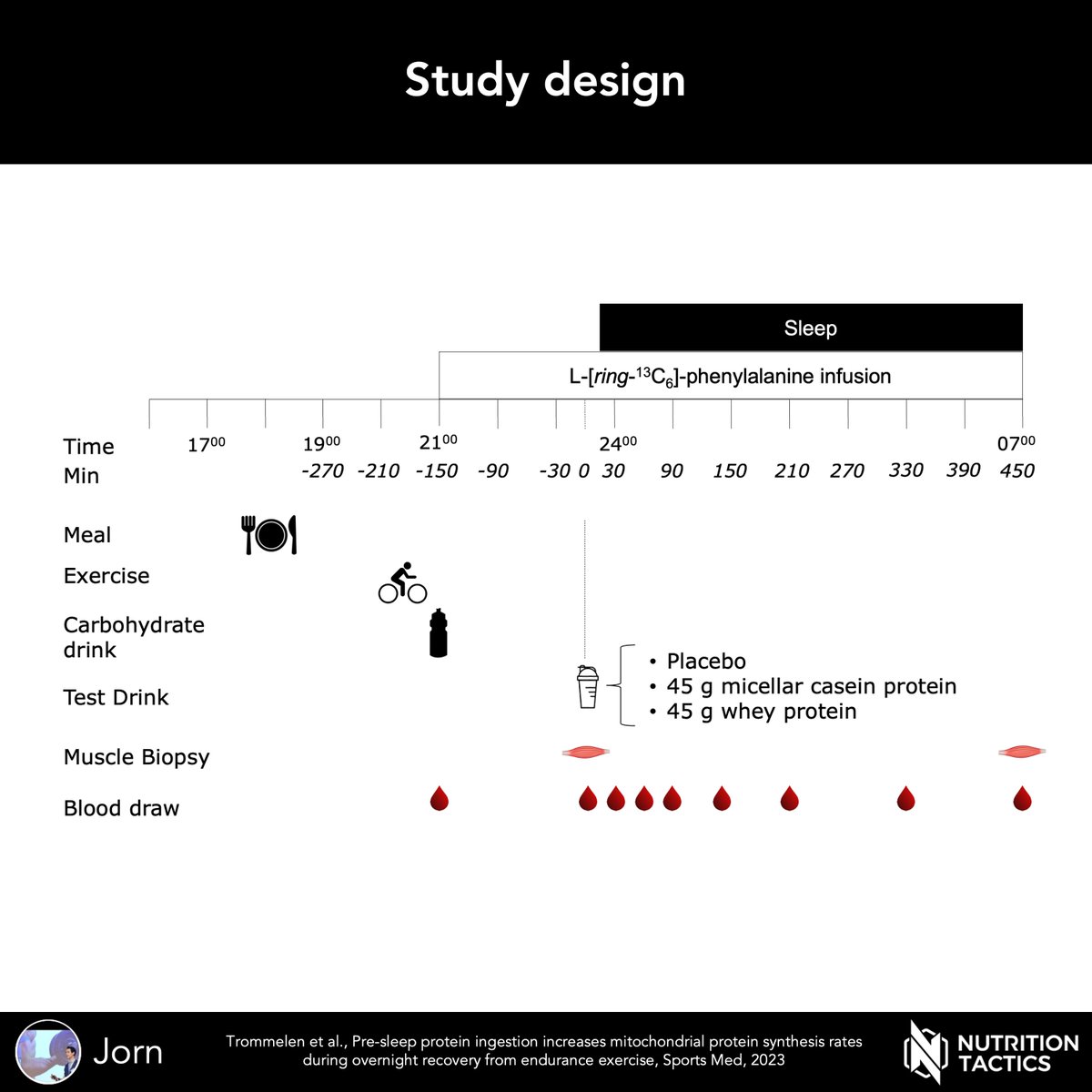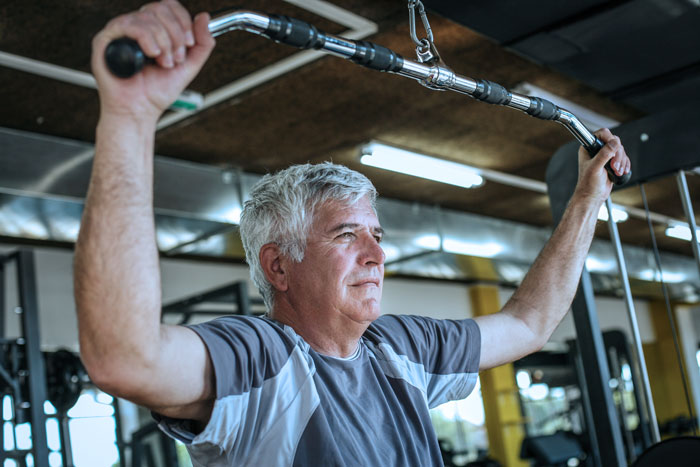Protein ingestion after exercise stimulates muscle protein synthesis (the main process regulating muscle recovery, adaptation and growth). It has been well established that protein intake improves resistance training adaptations.
2/
2/

However, little is known about the impact of protein on muscle adaptations following endurance exercise.
3/
3/

We investigated the impact of 15, 30, and 45 g of milk protein ingested post endurance exercise in trained cyclists. Both myofibrillar (contraction) and mitochondrial (energy production) protein synthesis were measured.
4/
4/

The endurance exercise session consisted of 1.5 hours of cycling on 60% of the maximal wattage of the subject.
5/
5/

None of the protein doses stimulated mitochondrial protein synthesis rates.
6/
6/
15 g of milk protein was not enough to significantly stimulate myofibrillar protein synthesis after cycling exercise. However, both the 30 and 45 g protein stimulated myofibrillar protein synthesis after cycling, with no significant differences between the doses.
7/
7/
Statistical analyses showed that ~0.49 g/kg was the optimal dose.
8/
8/
In conclusion, 30 g of milk protein gives a near-maximal stimulation of muscle protein synthesis during recovery from endurance exercise.
Our study:
pubmed.ncbi.nlm.nih.gov/32359142/
9/9
Did you find this useful? Please help promote the first tweet of the thread:
Our study:
pubmed.ncbi.nlm.nih.gov/32359142/
9/9
Did you find this useful? Please help promote the first tweet of the thread:
https://twitter.com/JornTrommelen/status/1573342223013662728?s=20&t=ZU9Qm-iL17UU72pKqriPrw
• • •
Missing some Tweet in this thread? You can try to
force a refresh






















